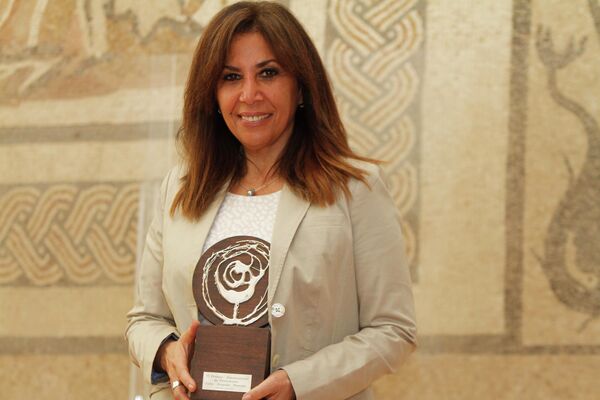Against the backdrop of general political turmoil, what started out as a mundane customer service blunder has escalated into a full-blown conflict between Egypt’s Muslims and its Christian minority. Once united by a common quest for regime change, the two confessions are now back to quarreling over their rights.
Until last month, Dahshur, a village 40 kilometers south of Giza, was a popular tourist destination known for its well-preserved monuments. It has now become the latest hotspot of sectarian enmity between Muslims and Egypt's minority Christians, known as the Copts, who make up an estimated 12 percent of the population.
When a Coptic laundry worker allegedly ruined the shirt of a Muslim customer, the ensuing argument between the two men escalated into bigger clashes between Muslim and Christian village residents, in which a Muslim man was killed and at least 16 homes were torched. Christian families had no choice but to flee to nearby towns to escape the wrath of the Muslims. Attempts by an angry mob to attack a village church were thwarted by security forces that used teargas to disperse the crowd.
This was the first instance of sectarian violence since Islamist President Mohamed Morsi was elected in June.
For his part, Morsi has denied that the conflict was sectarian, describing it as an "isolated incident that was blown out of proportion." Though he has vowed that "the perpetrators will be brought to justice," the Copts aren’t buying it. "We are tired of hearing hollow promises that are never fulfilled. We want action, not words," said Janet Fakhouri, a Coptic broadcaster with the Egyptian State Radio. She added that the January 2011 revolution was about rights, including equality for the Copts.
While Muslim Brotherhood members have spoken out against the violence, they too have refused to acknowledge that the clashes were sectarian. Amr Darrag, a member of the Muslim Brotherhood’s Freedom and Justice Party stated on the party’s Web site that the problem was between two Egyptians, regardless of religion. He criticized the media for “overplaying the incident and turning it into sectarian strife.” Darrag stressed that all Egyptians – Copts and Muslims – enjoy the protection of the law in Egypt.
Egypt’s Grand Mufti Ali Gomaa has described the events as “painful,” but denied that the Copts had been forcibly evicted. He insisted that they had chosen to leave for fear of reprisal attacks.
During the 18-day mass uprising early last year, Egypt's Muslims and Christians briefly joined forces in their common quest for regime change. In a rare display of unity, they shared meals and protected each other during mass prayers.
However, soon after the uprising that toppled Hosni Mubarak, differences between them resurfaced. The rise of Islamists to power in the parliamentary elections last year fuelled Christians' fears that their freedom may be restricted under an Islamist state. Seeking to allay these concerns, Morsi has promised an "inclusive" Egypt where all Egyptians would enjoy equal rights, but his words offer little solace to the Copts, who have experienced some of the worst violence since the January 25 revolution.
Tens of thousands of Copts have fled the country since March 2011, according to a report by the Egyptian Federation of Human Rights. The number is likely to increase.
Yet a former Member of Parliament Mona Makram Obeid, a Copt, says she's not too concerned. "What I've heard from president Morsi so far has been reassuring. He has promised to appoint a Christian and a female vice president and has affirmed there will be no discrimination against Copts."
Meanwhile, an uneasy peace has returned to Dahshur, but the Muslim residents of the village remain unremorseful. "The Copts brought the violence on themselves," a veiled street vendor shouted.
Dahshur may be the latest in a spate of violent attacks on Egypt's minority Copts, but observers say it won't be the last. Unless the root cause of the problem is addressed, said Sanaa el Assiouty, who works at the Egyptian National Council for Human Rights, the sectarian issue will not be resolved. "Officials must acknowledge that we have a sectarian problem and confront it," she said. Teaching children tolerance at an early age and stopping some of the ignorant imams from using their Friday sermons to incite hatred would go a long way in resolving the problem, she added.
Shahira Amin is an Egyptian journalist, the former deputy head of Egyptian state-owned Nile TV and one of its senior anchors.



